Musculoskeletal Syndrome of Menopause
Loss of Estrogen
Menopause is a significant transition in a woman's life, marked by the end of menstrual cycles.
Peri-menopause can begin approximately 10 years prior and so can some of the symptoms outlined below without complete loss of our cycle.
Menopause is a significant transition in a woman's life, marked by the end of menstrual cycles.
Peri-menopause can begin approximately 10 years prior and so can some of the symptoms outlined below without complete loss of our cycle.
Both are a time of shifts in our sex hormones like estrogen, progresterone and testosterone. The hormonal shifts we can see during this time have impact that goes beyond reproductive changes and extends to various bodily systems, including but not limited to the musculoskeletal system.
This can result in what is now known as the “Musculoskeletal Syndrome of Menopause”. which has recently been outlined by a Medical Doctor in an awesome article I will list below. Though it is not in my specific “scope of practice” to diagnose menopause, it is however, greatly in my scope to educate my patients and community in the effects the changes have on the body and to encourage conversations with providers who can prescribe the various support needed to help feel better.
Physical therapists can diagnose and treat muscular, tendinous, ligamentous, fascial, movement/motor planning and nerve issues and these tissues are all affected by the changes in hormones. If you wake up with more aches, pains, and limitations in your movements without doing something that would provoke this (changing jobs where you are changing the body’s requirements ie going from sitting job for years to a standing job, overuse issues like painting a room for a couple hours or a traumatic event like a fall or accident) you may be experiencing side effects from this condition...
Let's dive into five key factors that contribute to this condition and explore how they can be managed to improve quality of life:
1. Cartilage damage and arthritis
Estrogen plays a crucial role in maintaining various bodily functions beyond reproduction. As estrogen levels drop during menopause, it affects the regulation of chondrocytes, the cells that make up cartilage. This reduction can lead to increased joint pain and the progression of osteoarthritis (OA).
2. Increased Inflammation
Menopause is often accompanied by increased inflammation in the body. This can exacerbate joint pain and contribute to the development of arthritis. Managing inflammation through diet, exercise, and possibly hormonal supplementation can help mitigate these effects.
3. Muscle Loss
Muscle loss, or sarcopenia, is another concern. During menopause, women experience atrophy of muscle fibers, loss of fast-twitch fibers, and an increase in intra-muscular adipose tissue. This muscle deterioration not only affects strength and mobility but also contributes to overall frailty. Resistance training and protein-rich diets can help combat muscle loss.
4. Decreased Stem Cells
Satellite cells, which are muscle stem cells, are vital for muscle plasticity and regeneration. A decrease in these cells during menopause limits the body's ability to recover and maintain muscle strength. Incorporating activities that promote muscle health and possibly exploring regenerative therapies can be beneficial. (check out our StemWave device available at our office for possible help with these symptoms…)
5. Decreased Bone Density
Bone density decreases significantly during menopause, with 30-50% of women experiencing clinical fractures and 70% of hip fractures occurring in women. This highlights the importance of more than just supplements and nutrition; weight-bearing exercises and possibly medical interventions are crucial to minimize frailty and prevent fractures.
Addressing and Managing These Issues
While the musculoskeletal syndrome of menopause can seem overwhelming, there are ways to address and manage these challenges:
Hormone Replacement Therapy (HRT): Consult with your healthcare provider about HRT, which can help balance hormone levels and alleviate some symptoms.
Exercise: Incorporate a mix of resistance training, cardiovascular exercises, and flexibility routines to maintain muscle and bone health. This is where physical therapy can support you move better!
Nutrition/Supplementation: A balanced diet rich in calcium, vitamin D, and protein can support bone and muscle health.
Medical Consultation/Alternative or Functional Medicine: Seek out healthcare providers who listen and understand your concerns. They can offer personalized treatment plans to manage pain and improve mobility.
Feeling the effects of menopause doesn't mean you have to suffer in silence. Reach out to healthcare professionals who can help you navigate this transition and improve your quality of life.
ARTICLE: The musculoskeletal syndrome of menopause
Looking for help??
Reach out -
☎️/💬 615-696-9818
www.iamprioritypt.com










